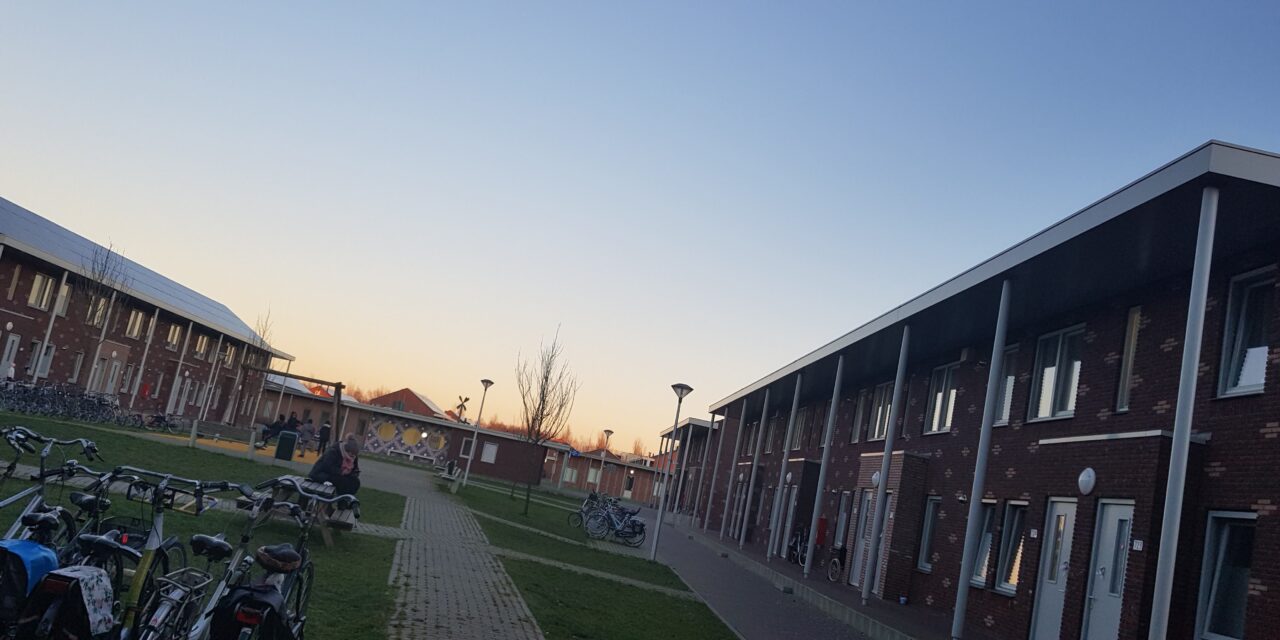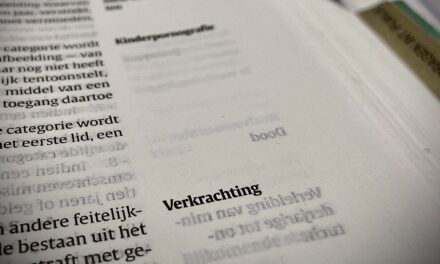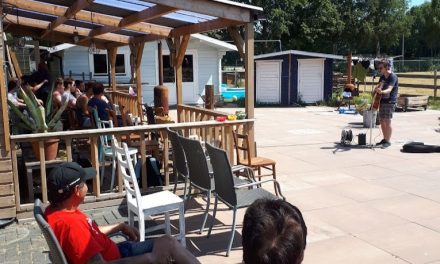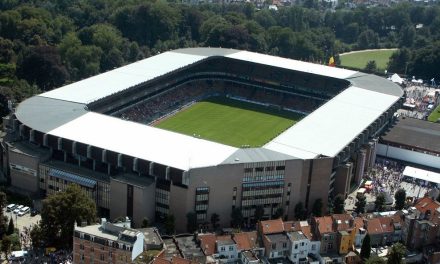It is a difficult feeling to leave your own country, be forced away from your family, your neighborhood, and your childhood friends. You left all of that behind you while feeling lost, afraid and unsafe to escape with your life and going to faraway countries you don’t know its language, culture, or its habits, to start your life from scratch again.
That is how millions of refugees feel, they have been forced by wars, persecutions to leave their countries to save themselves and their families. Some of them arrived in Holland after suffering a lot during their journey, but are they still suffering after their arrival?
The problems of integrating refugees who have residency into the labor market are not hidden from anyone, and the Dutch media have covered them several times, but in this interview, we spoke to several refugees who haven’t got a residency decision yet, they presented several problems they have faced in the Netherlands since their arrival.
Lawyer Ali Al-Salal, a Syrian with his 5 kids, said: “I was a lawyer in my country, and many engineers, doctors, and university professors surrounded me here, and we would love to work in our specialization, but the reality these capabilities aren’t utilized throughout our waiting in the camps, which exceeds a year until 4 years in some of the cases I met.”
About integrating into society, Ali said: “Wasting time and efficiency is the biggest obstacle we face as refugees, so why not use our time at this stage and teach us the language? Why is this education provided inside the camps only for nationalities with high chances of obtaining residence as COA tells us?”
Ali added, “Unfortunately, Dutch law prevents us from working until the residency is taken, after that 2 years are wasted on learning the language and then several years from 2 to 5 to equalize our certificates to be able to start working in our specialization.”
As an example, he said: “Imagine with me in my case as a lawyer; I have spent two years now in the refugee camp and haven’t got the residency yet -without language learning – assuming that I have taken the residency now, I still have 2 years for the language and 3 years for the equivalency of my certificate, So I will spend 7 years from the time I entered the Netherlands to could start working again in my profession.”
Also, Ali added: “Delayed procedures from the IND also make us feel insecure and frighten us about the unknown future. Will we be accepted or not? Will we be able to create a safe future for our family or not? Our feelings are mixed between frustration, failure, and anger. Your life is completely suspended. All of this affects your psyche.”
Several attempts by refugees with the Dutch administrative system to obtain their basic rights to education, including what Hamdy Saeed – an Egyptian lawyer with 3 children – said: “We asked the COA many times to provide classes to learning us the language or even give us Language books and introductory classes and we study them ourselves, because many of us with higher education are fluent in English and we will be able to teach ourselves, but we only need the basics, but COA answered us that (those books and any classes are only available to nationalities with high chances of being accepted for asylum)!
Hamdy asked, “How are we deprived of education because of our nationalities? How does the COA determine who is educated or not based on nationality? Unfortunately, there are many errors, discrimination, and racism in the protocol followed with refugees”.
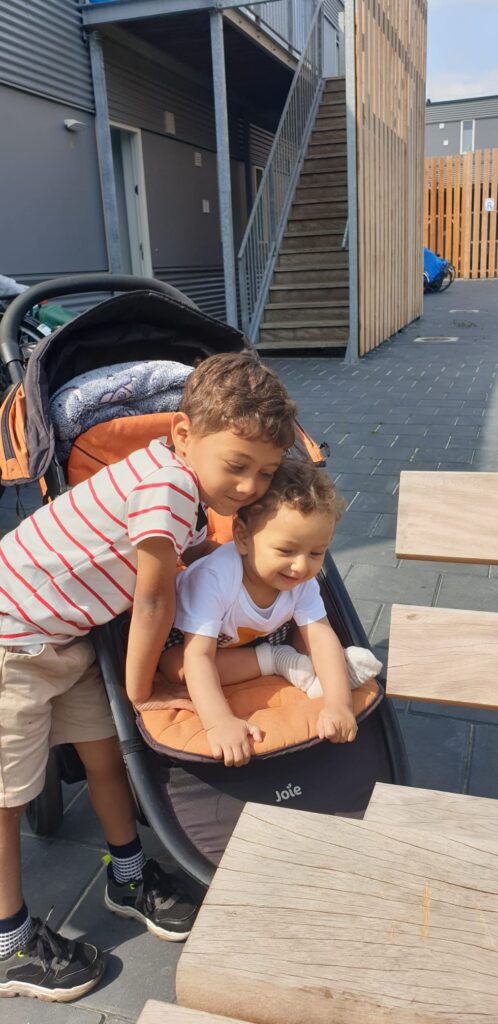
children at a refugees camp
We also spoke with Obada Mohamed, an Egyptian computer programmer (with two children), who described life in the Camps as soul-destroying and said: “After a year and 4 months we can no longer smile, we are under tremendous psychological pressure because we see COA members treating us indifferently. And heated, as if they come to perform a daily job and then return to their homes, without showing any sympathy or interaction with us, as if we were numbers in the files, not human beings who have feelings, pain, and suffering.”
Andrew van Ess, Director at “Stichting Global Talent Pool” In a televised statement confirms that “The mistake is in the current integration system, where the refugee’s integration isn’t monitored for many years.” He also added: “They are offered unsuitable jobs, which exist in the labor market, but it doesn’t match the refugee’s educational background.”
It is noteworthy that Media reports in the Netherlands have confirmed that there is a significant shortage of manpower, and the percentage of working refugees does not exceed 30%, most of whom work in occupations of a lower level than their educational level, but despite that the Integration begins after obtaining residency, which takes many years, up to seven years in some cases, without learning a language, a profession, or the equivalency of the educational certificate.
